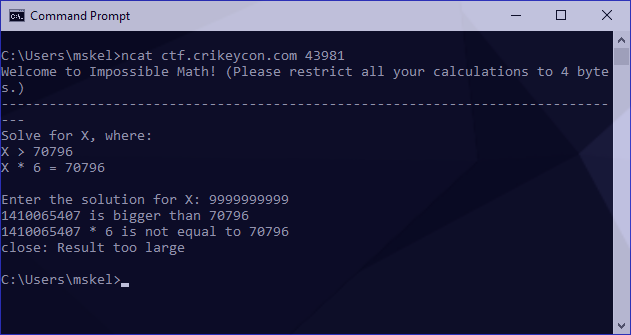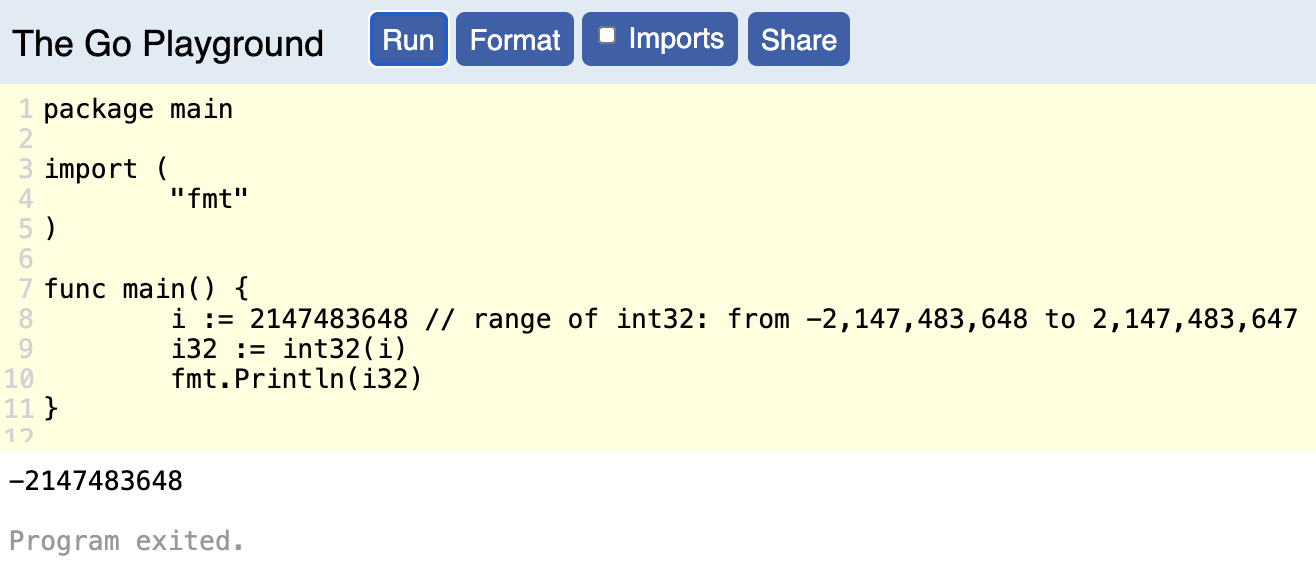


It should be explicitly noted when an integer overflow is not recognized, the program continues with wrong results.When the integer overflow produces some value, print it.When the integer overflow does trigger an exception show how the exception is caught.Result that does not fit into a 32-bit unsigned integer Result that does not fit into a 64-bit signed integer

Result that does not fit into a 32-bit signed integer The program should demonstrate what the following expressions do. These computations must be done such that the result would overflow. When a language has fixed size integer types, create a program thatĭoes arithmetic computations for the fixed size integers of the language.

The result can be too small or too big to be representable in the fixed size integer. This allows high performance and is the main reason to support machine level integers.Īn integer overflow happens when the result of a computation does not fit into the fixed size integer. The integers supported by such a type can be signed or unsigned.Īrithmetic for machine level integers can often be done by single CPU instructions. This integer types have fixed size usually 8-bit, 16-bit, 32-bit, or 64-bit. Some languages support one or more integer types of the underlying processor. It is best to do this when the player is already carrying 52 different items so the loadstone will take up the '#' slot.You are encouraged to solve this task according to the task description, using any language you may know. Overflowing the player's inventory is only possible by wishing for cursed loadstones, and this usually can only be done in wizard mode. The player can also wish for objects such as boulders and not have them drop to the floor. If inventory weight display is enabled, the player will see that the inventory weight is negative 2 billion and they will be able to pick up any object, provided that they have an inventory letter free. This tends to cause the Stressed/ Burdened/ Overloaded/ Overtaxed status to go away. It is also possible to cause integer overflow with containers or the player's inventory, causing them to have negative weight. Items with enchantments can go from -128 to +127 without overflowing.
#Integer overflow code
In the case of AC, the code calculates your current AC in a larger variable (varies, but most likely 32 bits), and then checks if the smaller AC variable (8 bits) would overflow. One way you can detect whether an overflow would occur is if subtracting from a negative value produces a positive value, or adding to a positive value produces a negative value. Some integers in NetHack, like AC and alignment, have protection against overflow. Thankfully, this doesn't happen in the case of AC. 124 AC is of course extremely bad, considering a naked human has 10 AC. 131 is too large for a signed 8-bit variable, so your new AC would be 124. If your AC is -126 and you put on a piece of armor that would reduce your AC by five points, then your AC would become -131. Subtracting too much from a small unsigned variable would produce a large value.Ī signed 8-bit variable (which is what AC uses) can store -128 to 127 inclusive. An unsigned variable that exceeds its capacity would become a small positive value, or zero. So for a signed variable, a negative value too large to fit would become a large positive value. Generally what happens, due to two's complement arithmetic, is that the variable wraps to the opposite end of the spectrum. Integer overflow is what occurs when a numeric variable exceeds its maximum capacity.


 0 kommentar(er)
0 kommentar(er)
